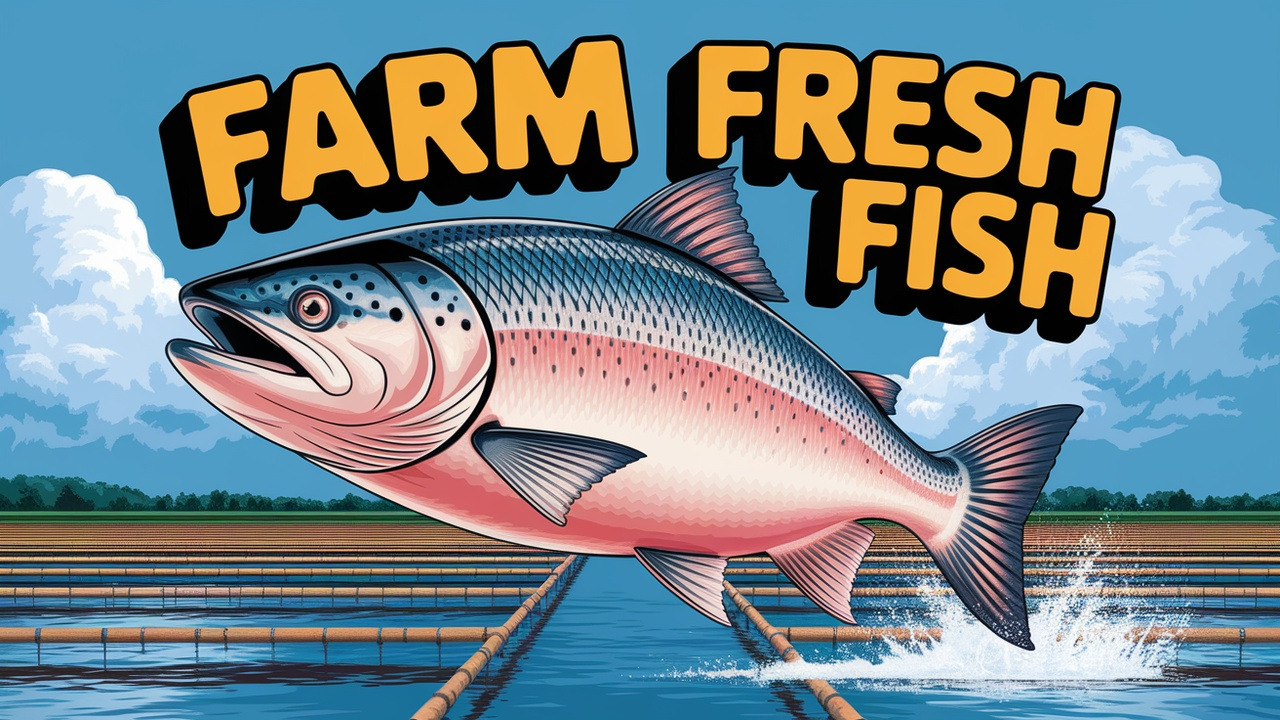
This comprehensive course provides an in-depth understanding of fish farming and aquaculture practices, covering everything from the fundamental concepts to advanced techniques and management strategies. Students will learn about sustainable practices, species selection, water quality management, and the economic aspects of aquaculture.
Course Levels
-
Level 1: Introduction to Aquaculture
This level introduces the basic concepts of aquaculture, including its history, significance, and types of aquaculture systems.
-
Level 2: Basic Biology of Fish
Students will learn about fish biology, including anatomy, physiology, and the life cycle of commercially farmed species.
-
Level 3: Water Quality Management
This level focuses on the critical aspects of water quality in aquaculture systems, including parameters, monitoring, and management techniques.
-
Level 4: Fish Farming Practices
Students will explore various fish farming methods, including pond culture, recirculating aquaculture systems (RAS), and cage systems.
-
Level 5: Fish Health Management
This level covers the prevention and treatment of diseases in aquaculture, including biosecurity measures and health management strategies.
-
Level 6: Nutrition and Feed Management
Students will learn about the nutritional needs of fish, feed formulation, and feeding strategies to optimize growth and health.
-
Level 7: Economic and Environmental Considerations
This level examines the economic aspects of fish farming, including cost analysis, market trends, and environmental impacts.
-
Level 8: Advanced Aquaculture Techniques
Students will explore cutting-edge aquaculture technologies and methods, including genetic improvement and aquaponics.
Course Topics
-
Feed Ingredients and Formulation
# Feed Ingredients and Formulation ## Introduction In aquaculture, the formulation of fish feed is crucial for promoting optimal growth, health, and overall performance of the fish. Understanding the...
-
Importance of Water Quality
# Importance of Water Quality in Fish Farming and Aquaculture Water quality is a critical factor that directly influences the health, growth, and overall productivity of aquatic organisms in fish far...
-
Recirculating Aquaculture Systems (RAS)
# Recirculating Aquaculture Systems (RAS) Recirculating Aquaculture Systems (RAS) are innovative fish farming practices that allow for the sustainable production of aquatic organisms. RAS involves th...
-
Vaccination and Medication Practices
# Vaccination and Medication Practices in Fish Health Management Vaccination and medication practices are critical components of fish health management in aquaculture. Proper implementation of these ...
-
Regulatory Considerations in Aquaculture
# Regulatory Considerations in Aquaculture Aquaculture, the practice of farming aquatic organisms, is governed by a complex framework of regulations designed to ensure sustainability, food safety, an...
-
Feeding Strategies and Schedules
# Feeding Strategies and Schedules Feeding strategies and schedules are critical components in fish farming and aquaculture, influencing growth rates, feed conversion ratios, and overall fish health....
-
Integrated Multi-Trophic Aquaculture
# Integrated Multi-Trophic Aquaculture Integrated Multi-Trophic Aquaculture (IMTA) is an innovative approach to aquaculture that involves cultivating different species from various trophic levels in ...
-
Biosecurity Measures in Aquaculture
# Biosecurity Measures in Aquaculture Biosecurity in aquaculture involves a range of practices aimed at preventing the introduction and spread of diseases among aquatic organisms. It is essential for...
-
Aquaponics Systems
# Aquaponics Systems Aquaponics is an innovative agricultural practice that combines aquaculture (the raising of fish) and hydroponics (the cultivation of plants in water) into a single, sustainable ...
-
Monitoring Water Quality
# Monitoring Water Quality ## Introduction Monitoring water quality is a critical aspect of fish farming and aquaculture. The health of aquatic organisms directly correlates with the quality of the w...
-
Market Trends and Consumer Preferences
# Market Trends and Consumer Preferences in Fish Farming and Aquaculture ## Introduction Understanding market trends and consumer preferences is crucial for the success of fish farming and aquacultur...
-
History of Fish Farming
# History of Fish Farming Fish farming, also known as aquaculture, is the practice of cultivating fish in controlled environments for commercial purposes. The history of fish farming dates back thous...
-
Treatment Options for Fish Diseases
# Treatment Options for Fish Diseases Fish diseases can significantly affect the health and productivity of aquaculture systems. Understanding the various treatment options available is crucial for e...
-
Research and Development in Aquaculture
# Research and Development in Aquaculture Aquaculture, the farming of aquatic organisms, is an essential sector that combines biology, technology, and environmental science to meet the growing global...
-
What is Aquaculture?
# What is Aquaculture? Aquaculture, also known as fish farming or aquafarming, is the practice of cultivating aquatic organisms, such as fish, crustaceans, mollusks, and aquatic plants, in controlled...
-
Economic Analysis of Fish Farming
# Economic Analysis of Fish Farming ## Introduction Fish farming, also known as aquaculture, is the practice of cultivating fish in controlled environments. This sector has grown significantly over t...
-
Utilizing Technology in Aquaculture
# Utilizing Technology in Aquaculture Aquaculture, the farming of aquatic organisms including fish, mollusks, crustaceans, and aquatic plants, has seen significant advancements due to the integration...
-
Effects of Nutrition on Growth and Health
# Effects of Nutrition on Growth and Health Nutrition plays a crucial role in the growth and overall health of fish in aquaculture. Understanding how various nutrients affect growth rates, disease re...
-
Water Treatment Technologies
# Water Treatment Technologies Water treatment technologies are essential in ensuring the quality of water in fish farming and aquaculture. These technologies help in removing contaminants and mainta...
-
Importance of Sustainable Practices
# Importance of Sustainable Practices in Aquaculture Sustainable practices in aquaculture are crucial for ensuring the long-term viability of fish farming and the health of aquatic ecosystems. As the...
- And 20 more topics...